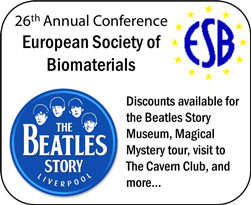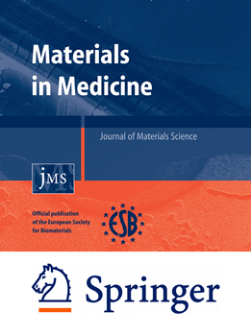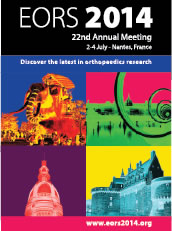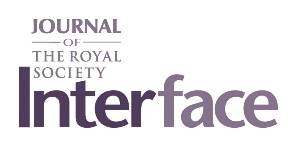The 2014 ESB conference will be presenting the following awards:
International Award
The International Award is a prestigious recognition by the ESB of scientists who have generally spent their career outside Europe, who have a widely recognised, high scientific profile, and have made major contributions to the field of biomaterials. The awardee will have shown strong evidence of collaborations with members of our scientific community in Europe throughout their career.
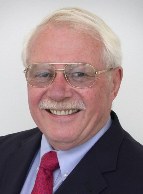 The 2014 International Award will be presented to James Anderson, Distinguished University Professor, Professor of Pathology, Biomedical Engineering, and Macromolecular Science of Case Western Reserve University in Cleveland, Ohio, USA.
The 2014 International Award will be presented to James Anderson, Distinguished University Professor, Professor of Pathology, Biomedical Engineering, and Macromolecular Science of Case Western Reserve University in Cleveland, Ohio, USA.
James M. Anderson received his Ph.D. at Oregon State University in 1967, his M.D. degree from the Case Western Reserve University School of Medicine in 1976, and did his Anatomic Pathology residency at the Institute of Pathology of University Hospitals of Cleveland. Following the completion of his residency, he joined the faculty of the Institute of Pathology at Case Western Reserve University. Throughout his career James Anderson has received many honors and awards such as a NIH MERIT Award, the Elsevier Biomaterials Gold Medal Award, the Honoris Causa Degree by the University of Geneva and the 2013 Acta Biomaterialia Gold Medal, amongst others. He is a founding member of the Society for Biomaterials and the Controlled Release Society and serves as a consultant to the NIH, FDA, and ISO, and is an elected member of the Institute of Medicine National Academy and the National Academy of Engineering. He is the Editor-in-Chief of the Journal of Biomedical Materials Research-Part A. Dr. Anderson has worked in the area of biomaterials, medical devices, and prostheses for the past 40 years and his current activities range from the clinical pathology evaluation of retrieved implants from humans to fundamental studies of cellular interactions with biomaterials.
George Winter Award
The ESB Council will choose an International Scientist who has contributed significantly to the knowledge in the field of biomaterials and/or the material controlled or influenced reactions within the host body through basic, experimental and/or clinical research. The work concerned and the results must have been published. This award is established to recognise, encourage and stimulate outstanding research contributions to the field of biomaterials and is presented annually during the Biomaterials conference of the Society, and consists of a certificate, a plaque and a refund of the registration fee and travelling expenses to the conference.
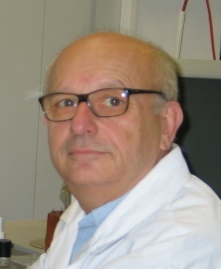 The 2014 George Winter Award will be presented to Guy Daculsi, of the University of Nantes.
The 2014 George Winter Award will be presented to Guy Daculsi, of the University of Nantes.
Professor Daculsi is Director of Research class Exceptional at INSERM, National Institute for Medical Research and Director of the SC3M Electron Microscopic, Microimaging and Microcharacterization Center of Nantes University.
His work has mainly focused on the process of mineralization and developing models for the mineral phase of calcified tissues.
In 1984, Guy Daculsi made a thematic change to Biomaterials, and particularly Bioceramics. He directed research on calcium phosphate synthesis in order to model the process of mineralization, but also to develop research on substitute materials for calcified tissues, particularly calcium phosphate synthesis. He was a pioneer in this field in France, developing an original concept of artificial bone, the Biphasic Calcium Phosphate Concept.
In 1989, Guy Daculsi created the Nantes University Research Center on Calcified Tissues and Biomaterials. The activity of the laboratory was supported by INSERM and also by the CNRS. After 16 years of management of the research center for Materials of Biological Interest, the laboratory became UMR INSERM U791, Laboratory Osteoarticular and Dental Tissue Engineering.
He developed a theme of original research relevant to the physio-pathology of calcified tissues at the level of mineral phases, particularly the degradation and dissolution by specialized cells. These studies and models developed are closely associated with the design, development and study of mineral phases used as synthetic bone and dental substitutes.
Degenerative osteoarticular disease, native defects and spinal deformities, trauma, bone tumors of the musculoskeletal system require to varying degrees, bone grafts. The original work on the concept of biphasic calcium phosphate bioceramics (BCP) associating the chemistry and micro and macroporous structure as a Bioceramic. BCP is a synthetic biomimetic bone substitute, totally absorbable, which gradually turns into natural bone.
His International contributions to the field of Bioceramics and Bone substitutes has been recognized at a major scientific distinction IUSBSE World (International Union of Societies for Biomaterials Science and Engineering) of the 8th World Congress on Biomaterials in 2008 in Amsterdam.
During the World Biomaterials Congress in 2008, he was awarded Fellow of the world federation of Biomaterials scientific societies (Fellow in Biomaterials Science and Engineering, FBSE). Guy Daculsi served on the executive Board of ESB, before being Chari of the 20th annual conference of the ESB in 2006.
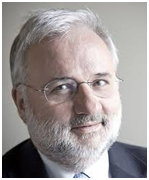 The 2013 Award was presented to Josep Planell, of IBEC, Barcelona.
The 2013 Award was presented to Josep Planell, of IBEC, Barcelona.
Jean Leray Award
This award is established to recognize, encourage and stimulate outstanding research contributions to the field of biomaterials by young scientists. It will be presented annually during the Biomaterials conference of the Society, and consists of a certificate, a plaque, a refund of the registration fee and travelling expenses to the conference and a cash prize. The nominee should not be older than 40 years at the close of nomination and should be not more than 8 years post-doctoral. Furthermore, the nominee must have contributed to the knowledge in the field of biomaterials and/or the material controlled or influenced reactions within the host body through basic, experimental and/or clinical research. The nominee needs neither to be a member of the European Society for Biomaterials nor a citizen of a European country.
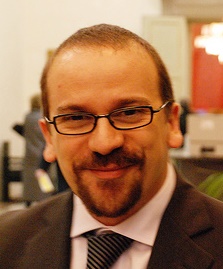 The 2014 Jean Leray Award will be presented to Lorenzo Moroni, of the University of Twente.
The 2014 Jean Leray Award will be presented to Lorenzo Moroni, of the University of Twente.
Dr Moroni studied Biomedical Engineering at the Polytechnic University of Milan, Italy, and Nanoscale Sciences at Chalmers Technical University, Sweden. In 2001, he visited the lab of Professor Luke Lee at University of California Berkley, where he worked on microfabrication technologies for tissue engineering applications. He received his Ph.D. (cum laude) in 2006 at University of Twente on 3D scaffolds for cartilage and osteochondral regeneration, for which he was awarded the European doctorate award in Biomaterials and Tissue Engineering from the European Society of Biomaterials (ESB). In 2007, he worked at Johns Hopkins University as a post-doctoral fellow in the Elisseeff lab, focusing on hydrogels and stem cells. In 2008, he was appointed the R&D director of the Musculoskeletal Tissue Bank of Rizzoli Orthopedic Institute in Bologna, Italy, where he investigated the use of stem cells from alternative sources for cell banking, and the development of novel bioactive scaffolds for bone and cartilage regeneration. From 2009 till 2014, he joined again the University of Twente, where he worked as an assistant professor until 2013 and as an associate professor thereafter in the Tissue Regeneration department within the MIRA institute for Biomedical Technology and Technical Medicine. Since 2014, he holds an associate professor position at the MERLN Institute for Technology Inspired Regenerative Medicine of Maastricht University. His research group interests aim at developing new biofabrication technologies to generate libraries of 3D scaffolds able to control cell fate. Since 2012, he has been a board member of the Young Scientist Forum of the ESB and co-chairman of the “Biofabrication” thematic group within the Tisssue Engineering and Regenerative Medicine Society. In 2013, he was also elected tothe editorial board of the journal “Biofabrication”. He is also a co-founder of the biotech company Screvo B.V., which is committed to the production of animal implantable 3D high through-put screening systems.
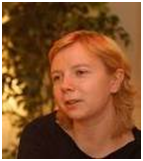 The 2013 Award was presented to Pamela Habivovic, of the University of Twente.
The 2013 Award was presented to Pamela Habivovic, of the University of Twente.
Translational Award
This award is established to recognise, encourage and stimulate outstanding translational research contributions to the field of biomaterials. The award is presented annually during the Biomaterials conference of the Society, and the winner is given a certificate and an honorarium of €300.
This award is attributed to a postdoctoral scientist presenting the best contribution in translational research at the Biomaterials conference of the Society. The nominee needs neither to be a member of the European Society for Biomaterials nor a citizen of a European country. The candidate must fulfil the following criteria:
To apply for an award, please write to the secretary of the ESB Council Marc Bonher at marc.bohner@rms-foundation.ch providing the relevant details above.
The Four Best Student Oral Presentations
Winners will be notified during the closing ceremony and receive €200 and a certificate. The candidate must be a student (with a letter from their supervisor), be the presenting author of the presentation and must have had an abstract that was accepted during the official abstract submission process. The candidate should indicate on the Registration Form if they wish to be considered for the award.
The Four Best Student Poster Presentations
Winners will be notified during the closing ceremony and receive €150 and a certificate. The candidate must be a student (with a letter from their supervisor), be the presenting author of the presentation and must have had an abstract that was accepted during the official abstract submission process. The candidate should indicate on the Registration Form if they wish to be considered for the award.
